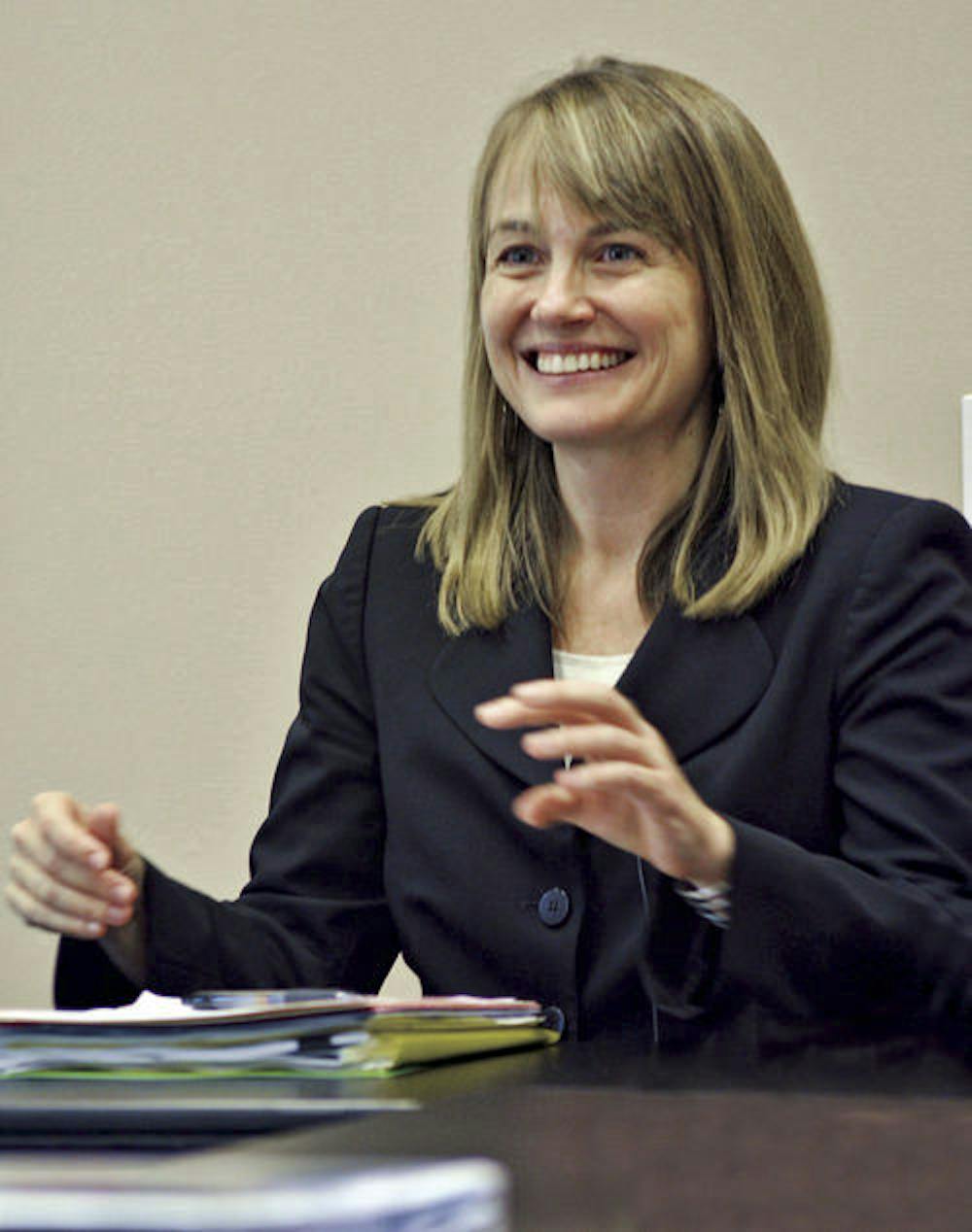After more than a year as dean, Laura Ann Rosenbury has changed the face of the UF Levin College of Law.
Since she began, the law school has enrolled not only its most diverse incoming class — with 35.9 percent of incoming students identifying as ethnically diverse — but also the most selective; their average LSAT law school aptitude test score was three points higher than the previous year’s.
However, not all of her decisions have sat well with students and faculty.
After an essay Rosenbury authored in Spring was published, students of the law school took to social media to express their discontent with her. In the essay, she wrote about a former student and a UF law professor who made sexist comments by referring to her as “young and vivacious” during a banquet last Fall.
Students on social media argued the dean should have refrained from identifying the student, saying it was unfair for her to identify the two men in a negative light.
“Attacking a student as a Dean of one of the graduate programs is a really bad precedent,” one commenter posted.
Rosenbury, 46, said she thought that by not including names, she was keeping it confidential.
“I thought by declining to use their names, I was doing enough to protect their identity,” she said in a phone interview. “In hindsight, I would have worked harder to protect the identity” of the student and faculty member, she said.
She said she doesn’t believe the men meant anything by the comment, but it was something she felt needed to be addressed.
“I believe that we first need to identify problems before we begin to solve them, and one way to begin to identify the problem is to talk about them and then to discuss,” she said.
Jeffrey L. Harrison, a UF law professor, said although he doesn’t agree with using titles that made it easy to identify the student and professor, he said he believes Rosenbury meant no harm.
“She’s just not that kind of person,” he said. “She’s not vindictive.”
Harrison said Rosenbury addressing the comment is proof that women in the legal system still face obstacles. He agrees with her saying that the word vivacious carries negative gender connotations.
“I don’t think anybody would call a man vivacious, because I’ve never heard of it,” he said.
Changes that Rosenbury has implemented at the law school, such as balancing classroom sizes and recruiting top students, have been for the better, he said.
But Jim Theriac, a UF law alumnus, said members of the law school have told him they’re afraid of speaking out against the dean.
“When I have four to five people telling me it’s a toxic atmosphere, I’m concerned,” Theriac said.
Michelle Jacobs, a UF law professor, said the incident was “the straw that broke the camel’s back.”
Jacobs said she’s noticed some of the law school’s community that includes students, faculty and staff feel misrepresented regarding decisions made by the administration.
“We do have a segment of the community — I won’t comment on how big it is — that do feel disrespected and not listened to,” she said.
Incidents like the uproar over the dean’s essay are the product of events being magnified because of long-running disagreements, Jacobs said.
“It’s not that change is not needed in our college,” she said. “Change is needed for any institution to grow, but the process by which the change takes place, I think, is the thing that’s driving the feeling of toxicity.”
Paul McBride, a third-year UF law student, said the courses during Summer semesters have been reduced, and a lack of communication between students and the administration is leaving him and other students unhappy with the direction of the college.
The 25-year-old said in years past, deans of the college would hold a few town hall meetings, during which students could express their concerns and ask the dean questions. Since Rosenbury’s term, there’s been only one, he said.
“We feel like we don’t have the ability to voice our concerns anymore,” he said. “We don’t want to feel like we’re at odds with the administration of our school. It’s an unfortunate situation to be in, because we’re supposed to be on the same team.”
If students had been informed of changes before they were implemented, like the elective classes being reduced, or requiring student organizations to host guest speakers at times that didn’t conflict with other organization’s events, conflict and confusion could have been avoided, he said.
Rosenbury wrote in an email her goal has been to foster a community of collaboration, engagement and civil disagreement. She’s hosted six two-hour “office hour” sessions with students, as well as eight meetings with student leaders.
“I welcome feedback at all times, including about how to improve faculty and student culture,” she said.
Moving forward, she wrote in the email that she wants to use data-driven and strategic approaches to continue increasing the profile of the law school.
“We are certainly a law school on the rise, and I very much look forward to what the future holds,” Rosenbury said.






